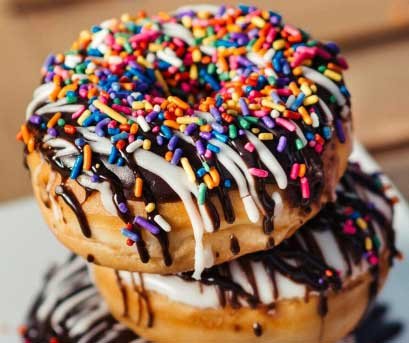How do our emotions relate to and influence our dietary choices? How does the food we eat change our mood?
Did you know that an emotion itself remains in our brain on average for just 90-120 seconds? What extends our emotions further is our thoughts about them. We continue to think more and more about them, and this is what often leads to feelings of anxiety and depression. There is often a connection between these feelings and emotional eating. Any extreme emotion can lead to us eat more, whether it’s joy or anger (marriage or a parting), and then we tend not to choose green beans or an apples, but pizza or chocolate. Most of us will choose something sweet that we associate with comfort food.
Emotional eating is a hot topic right now, probably because after trying all the possible diets, going from one extreme to another, from paleo to vegan, what we have found is that nutrition is one part of the picture, but the other part is our feelings and their impact on quantity and quality of what we eat.
How can emotions be separated from dietary choices?
There are four steps to this:
1. Are we emotional eaters? Awareness has a huge impact, it is important that we distinguish between eating out of hunger, and emotional eating. Emotional eating happens quickly: something occurs that evokes an emotion in us (it could be something at work, certain behaviour by another person, anything at all…) and immediately afterwards we feel the urge to eat. We are not open to a wide variety of food at this point, but rather, our need is for a certain type of food – chocolate, pizza, chips, most of us know what our comfort food is. So when you find yourself with a strong urge to eat chocolate, ask yourself – where does this come from? What happened just before? What led to this? Is there an emotional connection? Did my boss put pressure on me, did I feel tense and immediately feel the desire to eat chocolate?
2. Developing alternatives to extricate ourselves from the situation. As soon as you understand that your urge to eat right now is not related to hunger but is related to certain emotions, you should take a step back, and think of an alternative to food. It could be going for a walk to clear your head for ten minutes, calling a friend, writing in your diary, doing sports, doing anything else that will distract you. It takes the brain on average 15 minutes to readjust, so if you can distance yourself from the situation even just for quarter of an hour your brain can recalculate. Emotional eating is what pushes you to go to the nearest grocery store right now and buy chocolate, but if instead of doing that, you call your best friend and chat on the phone, by the time you hang up the urge will probably have passed.
If you find yourself in a situation where you choose foods that you know do not contribute to your health, try to stop for a moment, close your eyes, and ask yourself why you are making this choice at this moment. If you see that your choice is driven by emotion, are there other options? Taking one conscious breath while we think about it often helps us focus and make a better choice. The thing is that even if the answer right now is: No, now I must have this chocolate, perhaps if you think about the situation again later you will be able to see the situation from a distance, and maybe learn something from it to improve future choices.
3. Looking at the deeper implications of dietary choices. First of all, the basic tendency of most of us is to ask ourselves questions before, and not after. Two minutes before eating it, we think “how much do I want this chocolate now?”, instead of asking ourselves thirty minutes after we have finished eating it, “Did it make me feel better?” Almost always, the answer is no – we may feel tired, have a headache, bloating … in the end, we all know what is better and what is less good: food that is fresh, colourful, local, organic is always better than something that is processed, full of ingredients, imported, and likely to survive a nuclear holocaust and remain edible. When we eat well we feel good, today! It’s not just a question of achieving the right weight eventually, or not having a heart attack in 10 years’ time, but: tonight I will have more energy to play with the kids, go out with friends, enjoy life – today (and the bonus is that you will also reach the weight you want, and avoid a heart attack…)
4. Balancing blood sugar levels: As we make our diet healthier, blood sugar levels stabilise. Studies have found that among people with stable blood sugar levels, the tendency to have food cravings is just 15%, but when blood sugar levels are unstable, this percentage rises to 65%. So maintaining stable sugar levels may prevent food cravings … in short, the chicken and the egg in the best way possible: eat well, feel better, feel better, eat better!




Emotional eating is such a relatable topic, and these steps are truly insightful! Focusing on awareness and balancing blood sugar levels is a game-changer for healthier choices.